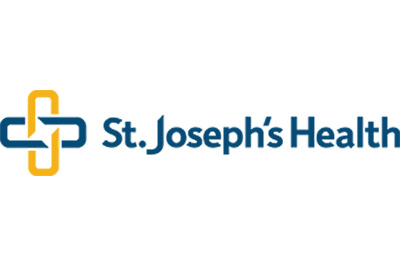Welcome to ComplyAssistant
Governance, Risk, and Compliance Management Software

Focused
We’re not a big, difficult-to-navigate technology organization. Small, but mighty, we focus on our core business of providing high-quality software and consulting for security and compliance.

Agile
We listen. We adapt. It’s actually one of our favorite things about our job. Using the Agile Method, we can quickly shift and modify our structured software solution based on what we hear from our clients.

Caring
We care for you like family. Seriously. We aim to build close relationships with our clients because it’s the best way to help them get where they want to be. That’s why our very first client is still with us today.
Boost Efficiency & Productivity
Enhance strategic, proactive risk management with comprehensive oversight through real-time, data-driven insights.

Access real-time data for informed, proactive decision-making.
Gain full visibility and control over your organization's operations.
Identify and mitigate risks with proactive, informed strategies.
Streamline Healthcare Security with ComplyAssistant's GRC Solutions
ComplyAssistant offers compliance management software and healthcare cybersecurity services to organizations of all sizes. We designed our software and companion cybersecurity services to help you organize and manage complex security and compliance processes making you more efficient.
What we offer
Plan for Success with Our Strategic Governance Services
Our strategic governance services provide the tools and insights needed to achieve organizational success, ensuring compliance and effective risk management.


GRC Software
Our risk management and healthcare compliance software can help you meet your compliance and security needs.

Healthcare Cybersecurity Services
We focus on virtual CISO services to cover all control standards (e.g. HICP, HIPAA etc.), identify gaps, and deliver a holistic risk mitigation roadmap.

White Label GRC Software
Managed service providers (MSPs) and Managed Security Service Providers (MSSPs) use our compliance management software to provide general IT and HIPAA services to their clients.
GRC Software
- Manage information security frameworks such as HIPAA, HICP, HITRUST, and NIST.
- Manage a high volume of third-party vendor risk management programs.
- Manage by exception with filtering, alerts and notifications – all in a simple user interface.
- Mobilize your audit teams with our mobile application free trial.
- Assess threats and controls across your entire organization with the risk register.


Healthcare Cybersecurity Services
- Our healthcare cybersecurity consultants are seasoned subject matter experts who provide unbiased reviews.
- We perform both internal security audits and vendor risk management services.
- All audit results are delivered in our compliance management software portal, not in a spreadsheet.
- Our consultants provide a directive action plan as part of your roadmap.
- Assess threats and controls across your entire organization with the risk register.
Why ComplyAssistant GRC Software Solutions are unique:
Our governance risk and compliance GRC tools are purposefully engineered to simplify an extremely complex process. The old tools simply aren’t enough anymore. You need structure and standardization with the help of compliance management software.
At our core, we believe in the power of a compliance-focused culture, where every department is empowered and enabled to protect information. Because of this, our goal is to standardize and document compliance and risk process across the organization, leaving no stone unturned.
ComplyAssistant’s GRC software solution is scalable, easy to use and flexible for any type of regulation or framework.



White Label GRC Software
Managed service providers (MSPs) and Managed Security Service Providers (MSSPs) use our compliance management software to provide general IT and HIPAA services to their clients.
- Easily manage a high volume of client audits with a structured tool.
- Administer third-party vendor risk management programs.
- Manage your clients by exception with extensive filters, automated alerts and notifications.
- Provide clients with secure access to their own documents and reports.
Common Questions
FAQs About Compliance Management Software
How does Managed Compliance benefit you?
Having compliance management solutions, or managed compliance, is beneficial in several ways. It helps your organization avoid fines, loss of certification, security breaches, and additional damages. Ultimately, it helps you maintain continuity of business and prevent financial loss.
What are the key elements of a compliance management system?
To be effective, a compliance management system should include oversight, a compliance program, and a compliance audit. Compliance software helps you achieve all three of these key three elements. When organizations work together toward comprehensive compliance management solutions, you can mitigate current and future risks.
Why is compliance management important for healthcare?
Compliance management solutions are essential for healthcare because patient fraud or abuse must be minimized. Utilizing the right compliance management software solutions can aid in enhancing patient privacy and safety. It also assists with billing, organizational efficiency, and the quality of care.
What types of businesses can benefit from using compliance management software?
Virtually every industry should invest in compliance management software solutions. It enables independent reviews within healthcare, manufacturing, and other organizations. Additionally, compliance policies, risk-management procedures, and cooperation protocols all benefit from compliance management technology.
Explore Your GRC Path with ComplyAssistant today
Start your governance, risk, and compliance journey with Diligent’s expert guidance. Our solutions ensure your organization remains compliant, efficient, and ready for future challenges.
Why Choose us
About ComplyAssistant

Comprehensive Support
Highlights the broad range of security frameworks and compliance regulations that ComplyAssistant's software and services cover.

Customer Efficiency
Focuses on the efficiency gains from using the software’s features, such as managing compliance processes and third-party risks.

Expert Team
Emphasizes the expertise of the consultants and their role in providing reviews, audits, and risk mitigation strategies.

Professional Solutions
Addresses the professional-grade solutions offered to manage client services, including secure document handling and reporting.
Testimonial







